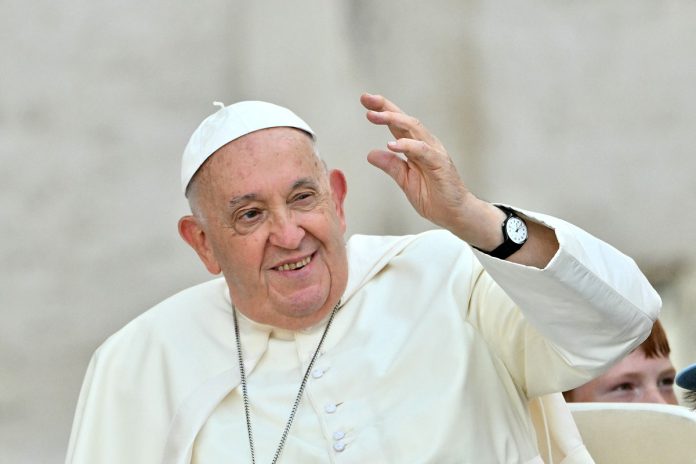Pope Francis on Monday met with the Holy Synod of the Malankara Mar Thoma Syrian Church, marking an historic first visit to Rome and confirming the good relations of the Catholic Church with this ancient Oriental Indian Church which traces its origins back to the mission of the Apostle St. Thomas in India in the first century.
The Mar Thoma Church has communion with the Thozhiyoor (Anglican) Church and maintains an ecclesiastical relationship with the Old Catholic Church, Union of Utrecht, as well as the Church of South India (CSI).
The Church also engages in ecumenical dialogues with various Churches, including the Syrian Orthodox Church and other Protestant Churches.
Additionally, the Mar Thoma Church actively participates in prominent ecumenical bodies, including the World Council of Churches (WCC), the Christian Conference of Asia (CCA), and the Church’s Auxiliary for Social Action (CASA).
Today, the Church consists of about 2.5 million members across the world, most of whom reside in the Indian State of Kerala, where it is based.
A “bridge Church” between East and West
In his address Pope Francis warmly welcomed the Holy Synod and extended his greetings to Metropolitan Theodosius Mar Thoma and the Malankara faithful, expressing gratitude for their ecumenical role, in bridging Eastern and Western Christianity.
“Your Church,” he said, “rightly defines itself as a “bridge Church” between East and West.”
Reflecting on the progress of relations between the two Churches over the past decades, the Pope mentioned milestones such as the Second Vatican Council, where the Mar Thoma Church was represented, and recent official dialogues that began in Kerala in 2022 and are ongoing. He expressed hope that this “step-by-step approach” would lead one day to sharing the Eucharist in unity.
“I rejoice at the beginning of this dialogue, which I entrust to the Holy Spirit and which I hope will hasten the day when we will be able to share the same Eucharist, in fulfilment of the Lord’s prophecy: “They shall come from east and west and sit at table” (cf. Mt 8:11).”
Ecumenism and synodality
Pope Francis went on to highlight two key areas for collaboration between the two Churches: synodality and mission.
Synodality, he noted, is intrinsic to the Mar Thoma Church and aligns with the Catholic Church’s recent Synod on synodality. The Pope recalled that one of the convictions expressed at the Synod, and stated in the Final Document, is that synodality is inseparable from ecumenism, “for both are based on the one Baptism we have received and on the sensus fidei in which all Christians share by virtue of Baptism itself.”
Quoting the late Metropolitan of Pergamon Ioannis Zizioulas Late one of the most influential Orthodox Christian theologians of the 20th and 21st centuries, he recalled that Christian unity, even if it will fully be realized only in the future, requires a present commitment “to walk, pray, and work together.”
Ecumenism and mission
On the topic of mission, Pope Francis remarked that synodality and ecumenism are essential for a stronger Christian witness. “Mission is not only the goal of the ecumenical journey; it is also its means,” the Pope stressed, expressing hope that, as the recent Synod suggested, “one day we can celebrate an ecumenical Synod on evangelization.
“Working together to bear witness to the Risen Christ is the best way for us to draw closer together.”
Pope Francis commended the Mar Thoma Church for its missionary spirit, which has much to contribute to this vision, and concluded by inviting all those present to join in reciting the Lord’s Prayer.
This article was originally published on Vatican News. All copyrights reserved to the Dicastery for Communication – Vatican News. Unauthorized republication by third parties is not permitted.









